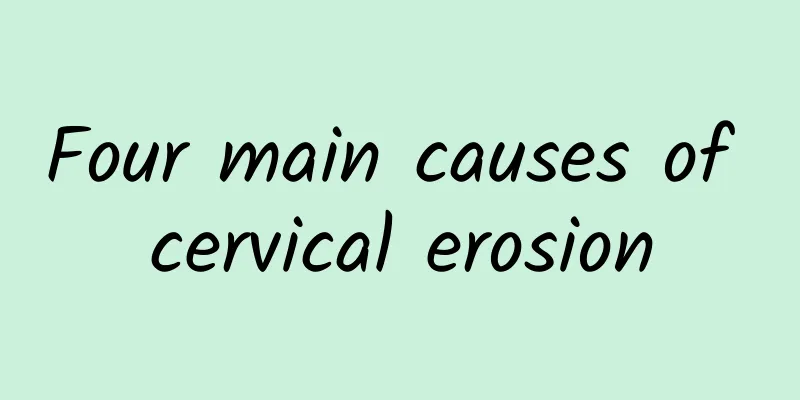Coffee: Pregnant women who drink coffee are more likely to have miscarriages and their fetuses may be deformed

|
Canadian researchers recently found that caffeine has adverse effects on people who already have insufficient insulin. Nowadays, coffee has become a fashionable drink, with more and more coffee shops opening, young people like to go to coffee shops for gatherings, and coffee has become a must-have drink for many families. However, health experts remind everyone that drinking too much coffee is not good for you. Health experts recommend that coffee lovers and those who are very sociable should not drink too much coffee. Two to three cups a day is appropriate. In principle, no matter what kind of stimulating beverage, it is best not to exceed three cups a day. 1. Researchers recently discovered that caffeine has adverse effects on people who already have insufficient insulin. Researchers have found that caffeine has adverse effects on potential type 2 diabetics and may trigger type 2 diabetes. Type 2 diabetes is the most common type of diabetes in Canada, accounting for 90% of all diabetics. 2. Scientists have found that if smokers drink three or more cups of coffee a day, their chances of developing pancreatic cancer will increase fourfold. Caffeine has adverse effects on normal cells, it can promote cell aging, and has a significant impact on the formation of pancreatic cancer. People who drink coffee regularly are 2-3 times more likely to develop pancreatic cancer than those who do not. Currently, about 20,000 people die of pancreatic cancer in the United States each year, and at least half of them are caused by drinking coffee. 3. Researchers found that coffee drinkers are more likely to get bladder cancer, especially women. If the risk of bladder cancer for people who drink only half a cup of coffee or no coffee a day is set at 1, then for people who drink more than 3 cups of coffee a day, the risk of bladder cancer for men is 1.31 and for women is 2.19. A Japanese scientific research report also said that many male gastric cancer patients like to drink coffee. 4. According to the research results published earlier in the world, pregnant women who drink coffee or other caffeinated beverages are more likely to have miscarriages. Even if they do not have miscarriages, the birth of the fetus may be lighter. However, this result is also controversial. The results of a recent survey by Swedish researchers prove that pregnant women who drink a small amount of coffee or other caffeinated beverages may not cause any harm to the fetus. However, most researchers admit that pregnant women should not drink too much coffee. 5. The caffeine contained in coffee has a mild central nervous system stimulating effect. Drinking it properly can reduce fatigue, enhance memory, reasoning and intelligence, and make hearing and visual reactions more acute. At the same time, long-term excessive absorption of caffeine may cause high blood pressure. The international medical community has also recently conducted in-depth research on the possible effects of coffee on health problems such as osteoporosis, high blood pressure, heart disease, weight loss, pregnancy and premature birth. Two speculations about coffee causing cancer One is that caffeine, the main component of coffee, plays a role in inducing tumors; Another is that the process of making coffee produces poppy-like substances that are carcinogenic. Although caffeine is not an addictive drug, experts believe that you should not quit caffeine too suddenly, so as not to cause migraine-like symptoms or irritability. To quit coffee, it is best to take a gradual approach, reducing a little bit every day until it is reduced to less than 3 cups. If you feel a headache during the reduction period, you should maintain the current amount for the time being, and continue to reduce it when the pain is gone. |
<<: How to protect the fetus when there are signs of miscarriage?
>>: Artificial abortion may damage the endometrium or affect future pregnancy
Recommend
What are the symptoms of ovarian cysts?
What are the symptoms of ovarian cysts? Ovarian c...
Will pelvic peritonitis heal on its own without treatment?
With the development of society, the pace of life...
Does irregular menstruation at 48 need to be regulated?
If irregular menstruation at the age of 48 is not...
Can 1.4 cm of pelvic fluid be cured?
Examination of the male partner helps diagnose fe...
Drink lotus leaf oolong tea for hyperlipidemia
Older people are most afraid of the three high pr...
How much do you know about the dangers of ovarian cysts?
Ovarian cysts are common tumors of the female gen...
What are the methods of abortion? There are 3 methods
When many women learn that they are unexpectedly ...
What are the triggering factors of cervicitis? In addition to miscarriage, there are two other causes
Cervicitis is one of the most common gynecologica...
Is it necessary to avoid certain foods when having cervicitis?
Is it necessary to avoid certain foods when havin...
Nursing care of pregnant postmenopausal patients during delivery
We must actively grasp the health care methods fo...
What medicine is good for women with irregular menstruation? This soup medicine improves irregular menstruation and works quickly
For women, they pay great attention to body condi...
What are the symptoms of pelvic inflammatory disease?
Pelvic inflammatory disease can cause a variety o...
Basic nursing routine measures for threatened abortion
Threatened abortion is no joke. Many pregnant wom...
Matters needing attention in regulating irregular menstruation
Although irregular menstruation is a manifestatio...
CT features of submucosal uterine fibroids
Uterine fibroids can be divided into intramural f...









